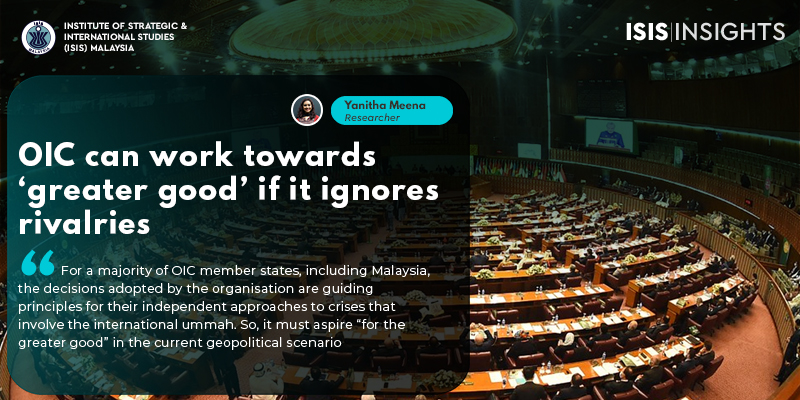India, Pakistan helped Afghanistan, showing that ‘rivals’ can resolve problems
AT the recently concluded 48th session of the OIC Council of Foreign Ministers in Islamabad (48th CFM), problems in the host country overshadowed the meeting for several reasons. First was the fact that Pakistani Prime Minister Imran Khan hosted the event despite facing a no-confidence vote, which is set for Sunday (3 April).
The Organisation of Islamic Cooperation meeting was significant for Imran to maintain the narrative that his premiership is needed to address issues important to Islamabad. It is no surprise that elements of his keynote speech on the day, particularly on Kashmir, made their way to the OIC’s official statement and declaration.
The 57 member states recognised the severe economic devastation and humanitarian crisis now faced by the Taliban-led Afghanistan, and this was also on the meeting’s agenda. Following the resolution adopted in the 17th Extraordinary Session of the OIC Council of Foreign Ministers in Islamabad last year to establish the Afghanistan humanitarian trust fund (AHTR) and Afghanistan food security programme (AFSP), members lauded the quick operationalisation of the AHTR and underscored the pivotal role of the Islamic Development Bank in that regard.
AFSP was envisioned as an Islamic Organisation for Food Security-managed endeavour and welcomes voluntary contributions from member states, international donors, and United Nations funds and programmes.
Despite the urgency to address the situation in Afghanistan, the recent Islamabad meeting turned into a stage for intensifying geopolitical rivalries in South Asia. Chinese foreign minister Wang Yi was guest of honour at the 48th CFM and he weighed in on several issues raised by Imran – specifically on border disputes and territorial integrity. The dominant subtext in the meeting largely steered the conversation away from the Afghan crisis while overlooking “extraordinary” India-Pakistan cooperation towards the Afghan cause.
In late February, India sent 50,000 tonnes of wheat and medicines to Afghanistan overland via Pakistan, after striking a deal with Islamabad to allow the shipments across the shared border. Against the backdrop of suspended trade and diplomatic relations, both India and Pakistan pulled a classic “for-the-greater-good” move and this proved to be beneficial for the people of Afghanistan.
The point here is that the OIC has real opportunities, resources and the right partners to make a difference, particularly with the humanitarian crisis in Afghanistan – as long as it is not plagued by long-standing rivalries and related narratives.
For a majority of OIC member states, including Malaysia, the decisions adopted by the organisation are guiding principles for their independent approaches to crises that involve the international ummah. So, it must aspire “for the greater good” in the current geopolitical scenario.
One example of how meaningful cooperation and tangible progress can be hijacked by rivalry and forced into “hibernation” mode is the South Asian Association for Regional Cooperation, a body that could have otherwise made inroads into alleviating the Afghan crisis.
While India is not part of the OIC, its “exceptional” cooperation with Pakistan for the Afghan people can be further built upon, perhaps to advance the goals of the AFSP. In fact, seeing how India in 2019 and now China, have been the OIC’sguests of honour, the organisation could mobilise cooperation with these countries that have proven to be committed to aiding the people of Afghanistan and strengthen the clarion call to do more.
The OIC’s potential to play a more pronounced role in addressing global challenges often goes unnoticed due to it being constantly mired in geopolitical tension and rivalries. Seeing how Imran also urged the OIC member states to mediate in the Russia-Ukraine war and try to bring about an end to the conflict, perhaps the first step is to understand realities and move away from deadlock situations that have no immediate solution. The key is to prioritise, compartmentalise and focus on shared goals for collective well-being.





